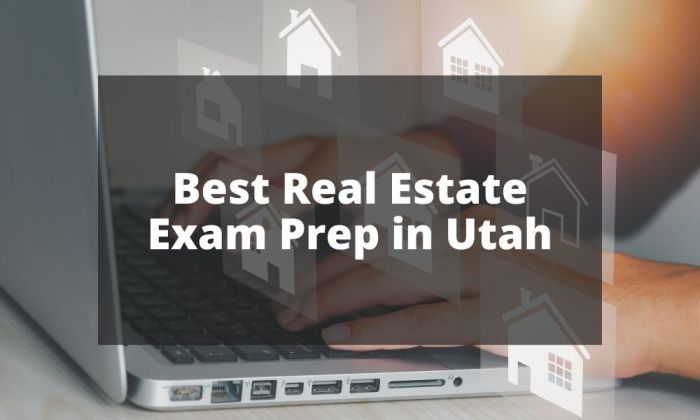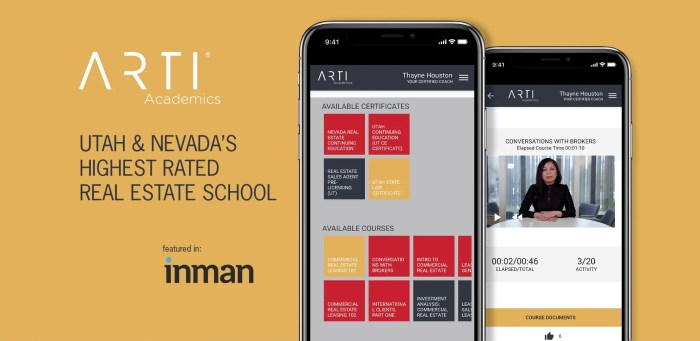Delve into the intricacies of Utah’s real estate licensing exam with our meticulously crafted utah real estate exam questions pdf. This comprehensive resource empowers you to excel in your exam preparation, providing a solid foundation for a successful career in the real estate industry.
Our question bank encompasses all essential exam topics, ensuring thorough coverage of Utah-specific real estate laws, regulations, and market dynamics. Engage with a diverse range of question formats, including multiple choice, true/false, and short answer, mirroring the actual exam experience.
Exam Preparation

Passing the Utah real estate exam is a crucial step in obtaining a real estate license in the state. The exam is designed to assess your knowledge of real estate principles, laws, and practices. Understanding the exam structure, question types, and time allocation is essential for effective preparation.
The Utah real estate exam consists of 140 multiple-choice questions. The exam is divided into two sections: a national section and a state-specific section. The national section covers general real estate topics, while the state-specific section focuses on Utah real estate laws and regulations.
Essential Study Materials and Resources
There are several essential study materials and resources available to help you prepare for the Utah real estate exam. These include:
- Real Estate Principles and Practices textbook: This textbook provides a comprehensive overview of the real estate industry, including topics such as real estate law, finance, and marketing.
- Utah Real Estate Law and Practice handbook: This handbook covers the specific laws and regulations that govern real estate transactions in Utah.
- Practice exams: Practice exams can help you identify your strengths and weaknesses and improve your test-taking skills.
- Online courses: Online courses can provide a structured and convenient way to study for the exam.
- Real estate exam prep classes: Real estate exam prep classes can provide personalized instruction and support.
Market Analysis: Utah Real Estate Exam Questions Pdf

The Utah real estate market has experienced consistent growth over the past decade, driven by a strong economy, population growth, and low interest rates. The median home price in Utah has increased by over 50% since 2012, making it one of the fastest-growing real estate markets in the country.
Several key factors are influencing the Utah real estate market, including:
Population Growth
- Utah’s population has grown by over 15% since 2010, making it one of the fastest-growing states in the country.
- This growth is driven by a strong economy, affordable housing, and a high quality of life.
Economic Growth
- Utah has a diverse economy with a strong presence in technology, manufacturing, and healthcare.
- The state’s unemployment rate is consistently below the national average.
- This economic growth has led to increased demand for housing, both from new residents and existing homeowners looking to upgrade.
Low Interest Rates
- Interest rates have been historically low in recent years, making it more affordable for buyers to purchase homes.
- This has contributed to the strong demand for housing and the rising home prices in Utah.
Investment Opportunities
- The Utah real estate market offers a number of investment opportunities for both domestic and international investors.
- Investors can choose from a variety of property types, including single-family homes, multi-family units, and commercial properties.
- The strong rental market in Utah makes it a particularly attractive market for investors looking for rental income.
Practice Questions

Practice questions are essential for exam preparation as they allow you to test your knowledge, identify areas where you need further study, and build confidence in your abilities.
The Utah Real Estate Exam covers a wide range of topics, including real estate law, principles, practices, and vocabulary. To ensure comprehensive preparation, it is important to practice questions covering all these areas.
Question Formats
Practice questions come in various formats, each with its own advantages. Multiple-choice questions test your ability to identify the correct answer from a list of options. True/false questions assess your understanding of basic concepts. Short answer questions require you to provide a brief written response, demonstrating your ability to apply your knowledge.
Explanations and Answer Keys
Detailed explanations and answer keys are crucial for effective practice. Explanations provide insights into why a particular answer is correct, helping you understand the underlying concepts. Answer keys allow you to check your progress and identify areas where you need to focus your studies.
Exam Preparation Strategies

Exam preparation requires a systematic approach to maximize efficiency and retention. Effective study techniques include active recall, spaced repetition, and elaborative encoding. Time management is crucial, involving setting realistic study schedules, prioritizing tasks, and minimizing distractions. Note-taking should focus on summarizing key concepts, using visual aids, and connecting new information to prior knowledge.
Memorization strategies like mnemonics, chunking, and visualization can aid in retention. Common pitfalls to avoid include procrastination, overconfidence, and ineffective study methods.
Effective Study Techniques
- Active Recall:Regularly test your understanding by recalling information without looking at notes, forcing your brain to actively retrieve knowledge.
- Spaced Repetition:Review material at increasing intervals to strengthen memories and improve long-term retention.
- Elaborative Encoding:Connect new information to existing knowledge, making it more meaningful and easier to remember.
Time Management, Utah real estate exam questions pdf
- Realistic Schedules:Create a realistic study schedule that accommodates your learning style and commitments.
- Prioritization:Focus on understanding key concepts first, then move on to details.
- Minimize Distractions:Identify and eliminate distractions during study sessions to maximize focus.
Note-Taking
- Summarize Key Concepts:Condense information into concise summaries, capturing the main ideas.
- Visual Aids:Use diagrams, charts, and mind maps to visualize and organize information.
- Connect to Prior Knowledge:Link new concepts to existing knowledge, making them more relatable and easier to remember.
Memorization Strategies
- Mnemonics:Create memory aids like acronyms, rhymes, or songs to enhance recall.
- Chunking:Break down large amounts of information into smaller, manageable chunks for easier memorization.
- Visualization:Create mental images or diagrams to associate with concepts, aiding in retention.
Common Pitfalls
- Procrastination:Avoid delaying studying until the last minute, as it can lead to stress and inadequate preparation.
- Overconfidence:Don’t assume you know the material without thorough review. Confidence should be based on solid preparation.
- Ineffective Study Methods:Passive reading or highlighting without active engagement can be ineffective. Use active study techniques instead.
Top FAQs
What is the structure of the Utah real estate exam?
The Utah real estate exam consists of 140 multiple-choice questions, divided into two sections: National (80 questions) and Utah State (60 questions). You have 180 minutes to complete the exam.
What is the passing score for the Utah real estate exam?
To pass the Utah real estate exam, you must score a minimum of 75% on both the National and Utah State sections.
How can I access the utah real estate exam questions pdf?
You can access the utah real estate exam questions pdf by clicking on the link provided in this article.